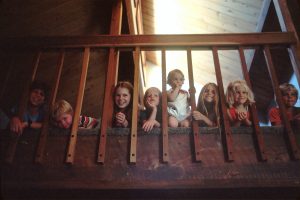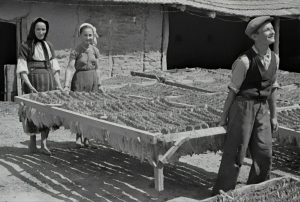Introdução
Bora falar sobre ser criança e o dia das crianças?
O Dia das Crianças está chegando, e não tem data melhor para lembrar como as crianças transformam nossa vida! Desde os momentos mais engraçados até aqueles que nos fazem parar e refletir, as crianças são o verdadeiro motor das nossas emoções. A verdade é que, seja no dia a dia ou em ocasiões especiais, as crianças sempre encontram um jeito de nos surpreender com a criatividade e a alegria delas.
No entanto, você já parou para pensar como a ideia de “infância” mudou ao longo dos anos? Afinal, hoje as crianças têm um papel fundamental na construção do futuro, mas nem sempre foi assim. Antigamente, as crianças não tinham tempo para brincar e descobrir o mundo como acontece hoje. Neste Dia das Crianças, que tal explorar essa história fascinante e entender como o cuidado e a proteção às crianças evoluíram para garantir que elas possam ser, de fato, crianças? Vamos nessa jornada juntos!
📖 Aqui você encontra…
clique para verObjetivo: Praticar leitura e expandir vocabulário em inglês com temas históricos e de interesse social.
Tópicos gramaticais abordados nesse texto:
Present Simple: Usado para descrever fatos e verdades gerais, como em “childhood is a time that needs protection” e “children are already shaping the world.”
Past Simple: Para descrever eventos concluídos no passado, como “children were seen as mini-adults” e “scientists began to encourage learning environments.”
Present Perfect: Para descrever ações que continuam a ter relevância, como em “has shaped modern education and child psychology.”
Modal Verbs: Expressam possibilidade ou obrigação, como em “children should have room to learn and grow.”
Comparatives and Superlatives: Usados para fazer comparações, como “more creative” e “better, kinder world.”
Passive Voice: Usada para enfatizar a ação, como em “children were expected to work.”
Conditionals: Para expressar situações hipotéticas, como em “if we nurture children today, they’ll grow into thoughtful people.”
Understanding the Importance of Childhood and Why It Matters Today

As parents, I’m sure you agree that the little moments with your kids are the best. You know, the first time we say that well deserved “I told you so” or having to hide when you want to eat a sugary treat. Certainly, you know the names of all the animated characters from Bob – The Builder, but you have no idea who those people dancing on social media nowadays are. Don’t get me wrong, we also remember the good stuff, like the first day at school, the first haircut and the first time they do something unexpected, like saying a funny word or “the F word”. Either way, living with children is an emotional roller-coaster, but we always have fun riding it.
But do you ever wonder about the concept of childhood? Well, I do. So let me take you on a journey through time to understand a little about how children used to live in the past and how childhood became part of the life of young human beings.
What does it mean to be a child? And how has that idea changed over time?
Did you know that, during the Middle Ages, children were seen as “mini-adults”? Yep! Childhood as we know it today wasn’t always like this. There was no clear separation between the world of kids and the world of grown-ups like we have now. Up until the age of seven, children were considered young humans with “immature behavior,” but after that, they were expected to roll up their sleeves and take on adult responsibilities.

At this point you might ask: are you talking about credit card debt and forgetting to defrost the chicken for lunch? Well, something like that.
Back then, childhood was basically “denied”. Simply there was no time for the kids “just to be kids”. Children were often neglected, and with high infant mortality rates, many parents would even wait before naming their children. And if you think that getting a name would guarantee a Barbie doll and some Hot Wheels toy cars, think again.
Without the childhood period, the “young adults” were expected to work, cook and take care of themselves. Also, forget about cute, colorful outfits we love to see on celebrities’ kids like we have today.The child section at the Gucci store had no reason to exist, because, technically, children “didn’t exist” either: they looked like adults, so they were adults and they could be dressed like adults.
It was only in the 16th century that things started to change.
Thinkers, religious leaders, and philosophers began to see childhood differently, recognizing that kids were beings in development and deserved a little bit more of attention. And that’s when the first schools were born! Of course, at first, they were just for the people who could pay for them. The idea was to keep children away from adult work, prepare them for the future and, you know, keep them alive for longer
Now, if you think this was progress, during the Industrial Revolution, things took a step back. While children from rich families went to school, many poor kids worked alongside their parents in factories, facing harsh conditions. Childhood became more rigid, leaving little room for creativity or play.
But then, in the 19th century, we had our savior, that one thing that would keep kids alive, healthier and in better living conditions: Science!
Thanks to science, people began to take a kinder view of childhood. Research on child development showed the importance of creating environments that supported children’s growth, with an education that respected their individuality. Finally, right?
Scientists also began to encourage learning environments that matched the developmental stages of childhood, promoting curiosity and creativity. These scientific insights led to widespread changes in schooling and child welfare policies, encouraging practices that respected the developmental needs and individual differences of children. This understanding continues to shape modern education and child psychology today.
What about childhood today?

Today, we understand that childhood is a time that needs protection, care, and plenty of room for kids to learn and grow. Most children around the world have access to things like education, healthcare, and the safety they need to flourish. But let’s be real—it’s not perfect everywhere. In some places, simply having a “childhood” is more of a privilege than a given. There are still children who face tough situations, like working instead of going to school or living in poor conditions. While this stage of life should be filled with curiosity and fun, for many, it’s clouded by challenges.
That’s why we need to appreciate childhood. It’s not just about preparing kids for the future; it’s about recognizing that kids are already shaping the world right now, with all their creativity and imagination. Protecting this special time means building a better, kinder world for tomorrow. After all, if we nurture children today, they’ll grow into the thoughtful, compassionate people we need for the future.
So, what’s your role in all this?
This Children’s Day, let’s celebrate the joy, curiosity, and boundless potential that every child brings to the world. Each smile, laugh, and question reminds us how vital it is to protect and value childhood, ensuring that every kid has the opportunity to grow, explore, and thrive. Children carry within them the seeds of the future, filled with limitless possibilities. Our role in this can be pretty simple: nurture, inspire, and stand by the kids around us. By doing so, we’re not just shaping their future but ensuring it’s bright, full of hope, and guided by kindness. Let’s take action today, because the future is in their hands—and it’s our job to make sure it shines.
Don’t let the fun stop here! Keep exploring our blog for more exciting stories, and don’t forget to comment, share, and engage with the content. We want to hear your thoughts and keep the conversation going. Your voice matters, so let’s make this space even more awesome together!




2 respostas
Vim ler achando que era uma besteirinha de dia das crianças e tomei um choque de realidade, kkk. Que texto necessário! Conteúdo incrível, parabéns!
All grown-ups were once children… but only few of them remember it…
ótimo texto, vide!